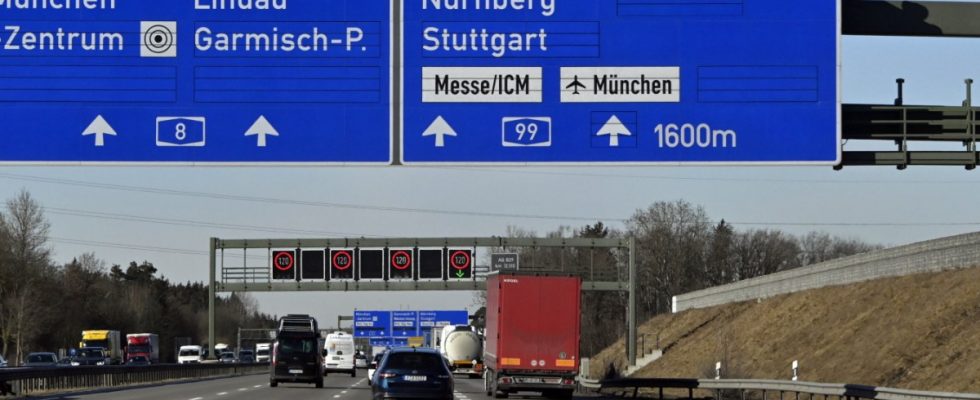How quickly infrastructure projects can be implemented in Germany can be seen on the east bypass of the A 99 in the district of Munich. The expansion of one of the busiest motorways in Central Europe has always been on schedule and within budget for years – and although it is like open-heart surgery, the operation with currently six lanes is always maintained. “The section here is running quite quickly,” says Kirchheim’s mayor Maximilian Böltl (CSU), who has the current construction phase almost right on his doorstep – and the citizens would ultimately benefit from it: “Investments in better noise protection are important for the entire region .”
The A 99 is one of 144 projects that can be found in the list by Federal Transport Minister Volker Wissing (FDP) entitled “Annex acceleration road projects”. Hardly anyone in the metropolitan area of Munich, which is heavily congested with traffic, believes that the expansion of the eastern bypass in particular could be completed even faster. And the minister’s offensive is met with little approval, especially in the district of Munich, which is cut through by eight freeways, seven of which lead to the state capital. Green Party member Markus Büchler called the plans “absolute nonsense” and said there was really nothing to accelerate on the eastern bypass. Even more: “The possibility of accelerating the expansion of motorways is an impertinence for people and nature and torpedoes the traffic turnaround.” Bavaria needs a “massive expansion of the ailing railway,” says the man from Oberschleißheim. “The road network, on the other hand, is fully developed.”
The A99 has already been widened to eight lanes from the München-Nord junction to the Aschheim/Ismaning junction.
(Photo: Sebastian Gabriel)
However, other signals are coming from the city and from the coalition partner FDP. Michael Ruoff, head of the Munich Liberals, calls the expansion plans “an important signal for the transit country Bavaria” and in particular for the city and district of Munich. Ruoff does not want to accept the argument that all of the infrastructure projects mentioned are already part of the Federal Transport Infrastructure Plan and are therefore already being planned or under construction. “Now it’s a matter of implementing the projects at full speed, we have to put pressure together and we also need the federal states for this,” he says. And the expansion of rail must also be pushed ahead, and “Volker Wissing stands for that like no other,” he emphasizes.
The focus must be on the rail
The chairman of the SPD in the district, Florian Schardt, can even understand to some extent that the motorway expansion is so important for the liberals. In addition, in a three-party coalition, as in the federal government, it is also part of shining and suffering together. “The FDP has been severely plucked, but I also recognize its state-political responsibility, as with the special fund for the Bundeswehr,” says Schardt. Nevertheless, the Social Democrat also says that too much energy should not be put into motorway projects; the focus must be on the rails. Specifically, for example, on the extension of the U 5 from Neuperlach-Süd to Ottobrunn or the double-track expansion of the S 7 – and even larger in view of the increase in freight traffic through the northern access to the Brenner.
In addition to noise protection on the motorway, which, if necessary, must also be regulated with night-time speed limits, Kirchheim’s mayor Böltl also relies on areas for photovoltaic systems on the motorways. The fact that the construction sections on the A 99 were realized without solar systems is “a missed opportunity”. And he brings another idea into play: Solar roofs over the A 99 would be “a benefit for the whole region, maybe even in terms of noise protection,” says Böltl.

